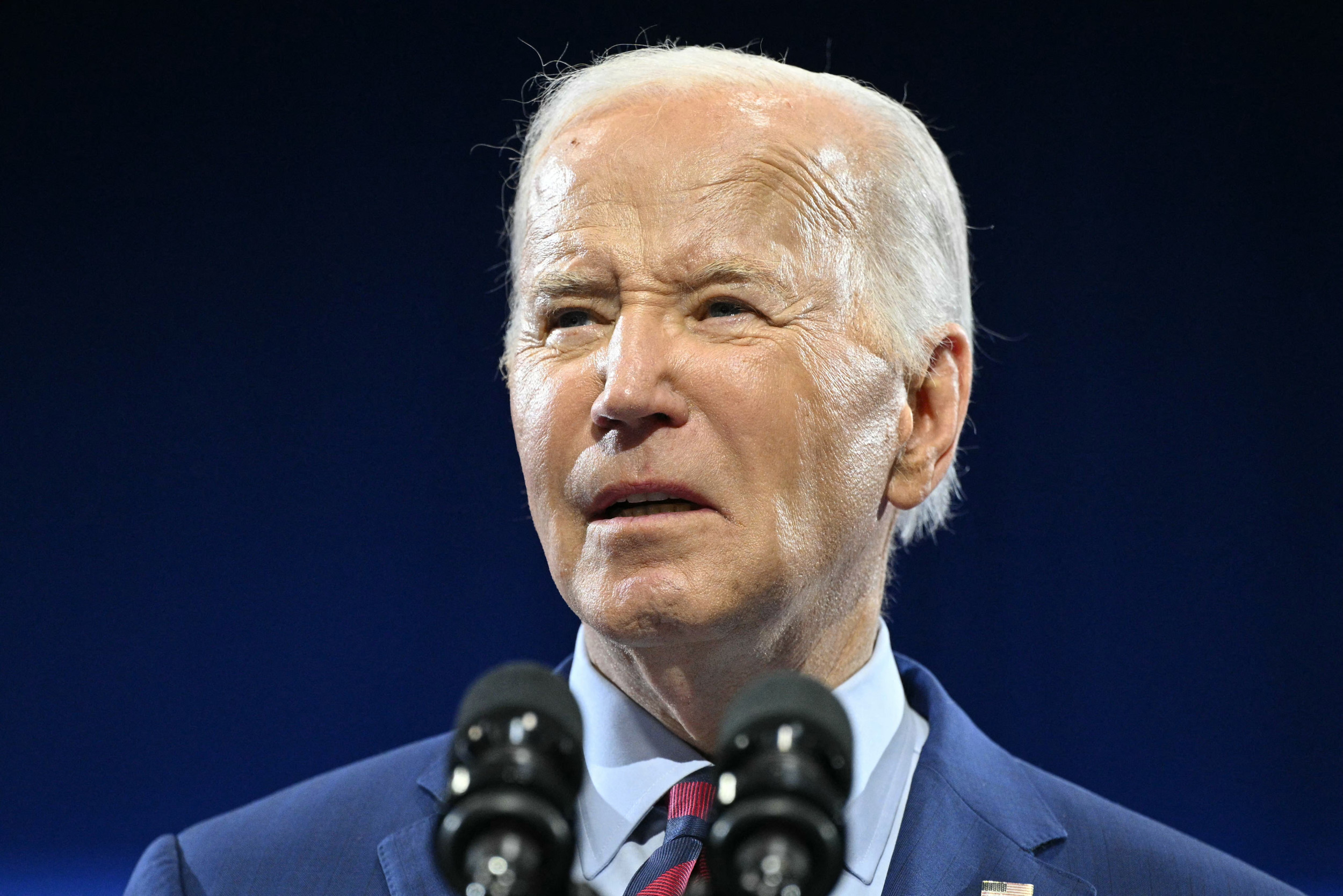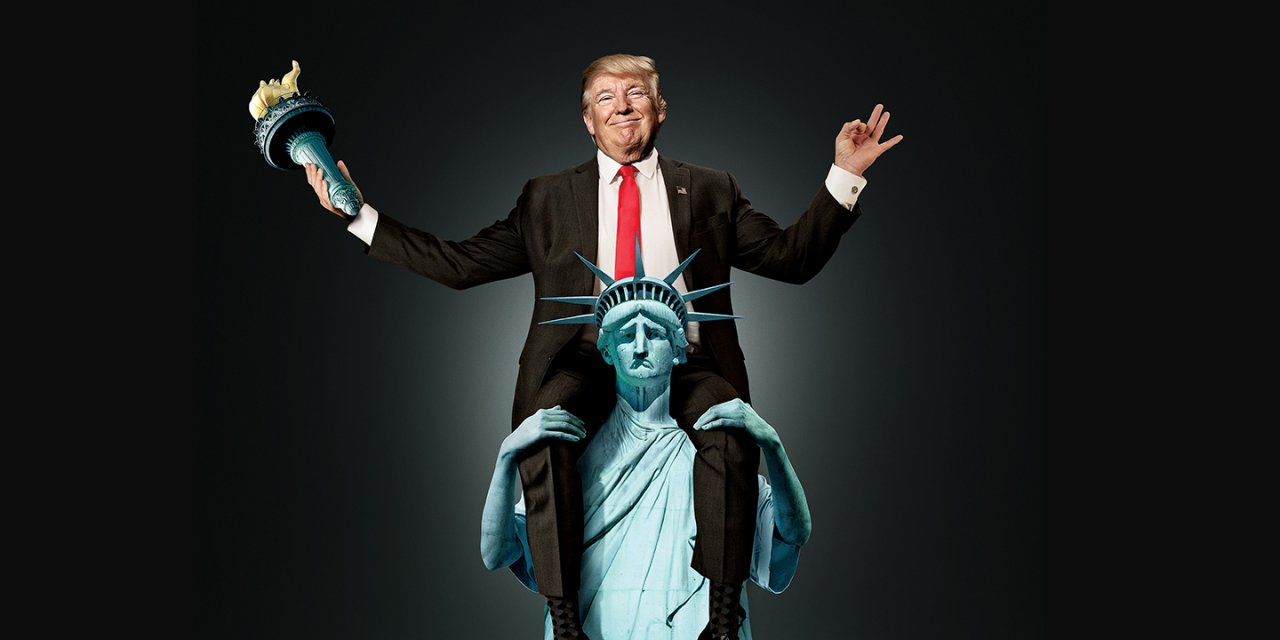
On the day House Speaker Nancy Pelosi said she would allow an impeachment investigation to commence, Donald Trump at first was "gleefully defiant," say two of his aides. He would release a transcript of his controversial phone call with Ukraine President Volodymyr Zalensky, showing—as he put it in a press conference at the United Nations on September 25—that there was "no pressure" and no quid pro quo. He just wanted dirt from Ukraine about one of his main political rivals, former Vice President Joe Biden, but didn't offer anything in return. What could be wrong with that?
When it became clear that the Ukraine controversy would become the centerpiece of an impeachment effort, his glee turned to anger, the aides say. And those who know Trump best know what that means: Here comes the counterattack. As Roger Stone, his longtime political consigliere—who now faces indictment as a result of the Robert Mueller probe—put it during the 2016 campaign: "He's the ultimate counterpuncher. If you hit him, he'll hit back and hit back hard. He doesn't necessarily like starting fights, but if you pick a fight with him, he will fight back. Always."
Trump as a "fighter" is one of the things that endeared him to his core supporters in 2016. It's an image that has, for the most part, served him well politically: fighting the Chinese on trade, fighting to "drain the swamp" of the "Deep State" in Washington, fighting to limit illegal immigration. Those pugnacious instincts were long a trademark of Trump's litigious business career. "I love to have enemies. I fight my enemies. I like beating my enemies to the ground," he once said. Those instincts were egged on in the White House by some of his aides including former campaign chief Steve Bannon, and now domestic policy adviser Stephen Miller.
The president, says a White House official not authorized to speak on the record, "has been on a "war footing against his political enemies pretty much from day one"—which in part explains why he apparently had no qualms about asking the president of Ukraine for dirt on Joe Biden and his son Hunter. That aggressive posture is now more or less permanent. The impeachment proceeding, and the administration's inevitable pushback, will ratchet up the already extraordinary level of political rancor in Washington and throughout the country. His campaign was already mocking the Democrats for daring to go down the impeachment road. "Democrats can't beat President Trump on his stellar record," said campaign manager Brad Parscale, "so they're trying to turn a Joe Biden scandal into a Trump problem. That will only serve to embolden and energize President Trump's supporters and create a landslide victory for the president."
A cohort of Trump's senior advisers doesn't share the delight. White House sources say that Acting Chief of Staff Mick Mulvaney, Ivanka Trump and her husband Jared Kushner, among others, had been hoping for a period of calm following the issuance of the Mueller report, which the president believes vindicated him. They hoped Trump could ride a strong economy and a year of "normalcy," as one aide put it, straight through to next year's election.
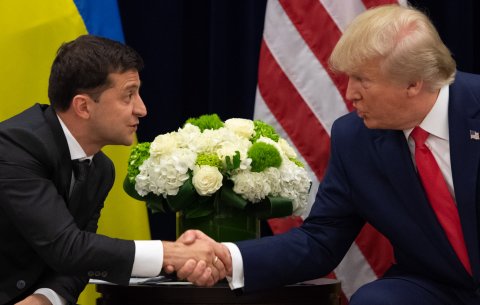
Though they understand that Trump's appeal to his base is deeply rooted in his willingness to upend Washington's political conventions, there is concern even among some of the campaign staff that the endless media coverage of alleged scandals—from Russian "collusion" to emoluments violations (using his presidency to to enrich his businesses) to Ukraine—has worn out a fairly broad swath of independent voters and moderate Republicans. The president's senior advisers believe that Democrats suffer from "Trump derangement syndrome," but they worry about the danger of "Trump exhaustion syndrome"—that battered voters could turn for relief to what one senior Trump campaign staffer calls "a sane Democrat." That, in the current field of front runners, means Joe Biden.
The fact that Trump's overall approval rating has pretty much been stuck in the low 40s gives some credence to this view. So too does the fact that Biden beats the president in most polls, and is competitive in the key midwestern states that propelled Trump to victory in 2016. (Though some polls show both Elizabeth Warren and Bernie Sanders beating the president as well, Trump's campaign is far more confident of its ability to beat either of them.) Ukraine-gate, which one Trump adviser calls this "shit-show," guarantees that any hoped-for period of calm won't happen. That the phone call to the Ukrainian president came literally one day after Robert Mueller's widely panned testimony before Congress in July, effectively ending the possibility that Trump would be impeached because of so-called Russian collusion, has White House aides banging their heads on their desks in frustration. "We really thought things were looking up going into the election year," says one. "Now? Who knows?
Fighting doesn't mean winning
Trump will now try to take the fight to his enemies. But when he fights, as his confidantes know well, he doesn't always win.That was true throughout his business career. In 2009, to take but one example, he sued New York Times journalist Tim O'Brien for defamation for writing that Trump's net worth was somewhere between $150 million to $250 million—not the billions that Trump has claimed. A New Jersey court threw out the case for lack of evidence. And in a deposition taken by O'Brien's attorney, former federal prosecutor Mary Jo White, who would go on to chair the Securities and Exchange Commission under President Obama, Trump admitted that he had repeatedly lied over the years about the value of a variety of his properties. The counterattack on O'Brien was entirely counterproductive.
Trump honed his ignore, deny and attack modus operandi during his long business career. As his real estate and casino businesses weakened in the first part of the 90s under a huge debt load, Trump was slow to respond to the deterioration, according to associates at the time. "He needed to find ways to pay down debt and he just didn't do it quickly enough," rival casino owner Steve Wynn later said. Trump's auditors finally wrote that the "overleveraging of this organization, particularly of non-casino hotel assets, has created a crisis atmosphere." That finally got his attention.
Trump would enter bitter negotiations with his creditors, forcing them to take just a fraction of what the organization owed them. All the while, though, he publicly denied that his company was encountering significant financial problems, still insisting he was worth close to a billion dollars—a ludicrous assertion at the time.
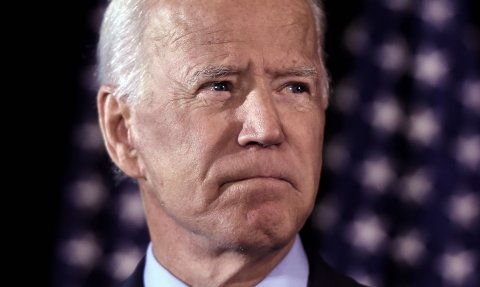
As president, Trump hasn't had the luxury of simply ignoring the crises surrounding him. Disregarding the Mueller probe was not an option. He publicly attacked the investigation as a "witch hunt" and a "hoax," but behind the scenes at the White House he went along with his lawyer's counsel that they give Mueller everything requested in terms of documents and testimony. And the White House was careful to let Mueller's people know that the president's rhetoric "was just politics, and they understood that," says former Trump attorney John Dowd. In the case of the Russia probe, his denials of colluding with Russia were borne out. Mueller could find no evidence of it, much to the chagrin of Democrats.
Now, with the disclosure that he asked his Ukrainian counterpart for dirt on Biden and his son Hunter—who served on the board of a Kiev based gas company that paid him $50,000 a month while his father was vice president—Trump is in denial mode. Because he believes the transcript of the call didn't prove that he was withholding aid, including defense funds, from Kiev unless he got what he wanted, Trump is denying there anything was untoward. "It was a beautiful phone call," he told reporters at the U.N. Wednesday.
In the same news conference, he telegraphed his next line of attack against his political enemies. When asked by a reporter why it's okay for an American president to ask a foreign counterpart for dirt on a political opponent, and how he would have felt if Barack Obama had done the same to him, Trump responded: "Well, that's what he did, when you think about it."
This was a reference to the ongoing Justice Department investigation into what predicated the Russia probe into Trump and his campaign. That investigation is being led by John Durham, a U.S. attorney in Connecticut. The ostensible beginning of "Operation Crossfire Hurricane," as the FBI's Russia probe was called, came in July of 2016. But Trump partisans believe that that was not, in fact, when the investigation opened. They believe several foreign intelligence agencies—including the British, the Australians and the Czechs—were all feeding information to the CIA about some low-level members of the Trump campaign and their alleged interactions with Russians in 2015, and that they were acting at the behest of the Obama administration's intelligence chiefs.
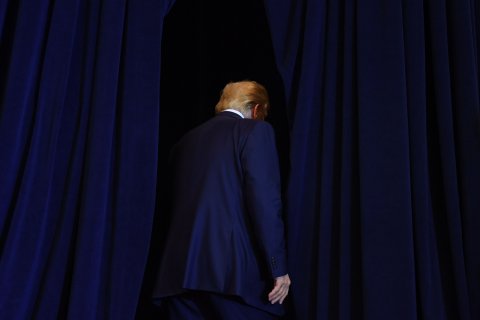
John Brennan and James Clapper, respectively the CIA chief and the DIrector of National Intelligence under Obama, have both denied the allegation, but Durham is looking into what role the CIA might have played before the FBI formally launched its investigation. Trump's problem is that his line of attack—that the CIA and the FBI colluded with foreign intelligence services to damage his candidacy and then, once he won, cripple his presidency—will only be borne out if Durham finds credible evidence of that assertion. That at minimum will take awhile, and the revelations Trump supporters seek may never arrive.
In the meantime, a bitter impeachment fight has opened, one likely to last well into the campaign. Optimists in Trumpland believe we will now see a replay of the unpopular and unsuccessful effort to unseat Bill Clinton 1998. That resulted in GOP losses in the House and a resurgence of popularity for Clinton. Trump himself predicted an impeachment fight "will be a positive for me."
History rarely repeats itself that precisely. Trump will likely survive, like Clinton, because a conviction requires a two- thirds vote in the GOP controlled Senate. But an epic political war—in a Washington that doesn't get much done anyway—is about to begin. The concern among some in Trump world may be justified: a year from now, a sufficient number of Americans may be tired of the drama and conflict and gridlock, and they'll vote to send Donald Trump into retirement.




